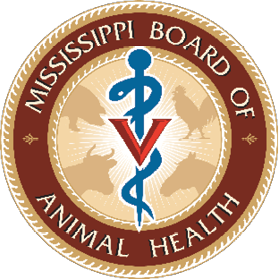Newcastle Disease in Backyard Chickens
Serious disease outbreaks are recognized as one of the poultry industry’s greatest vulnerabilities because they have the potential to impact not only small backyard flocks, but also the multi-billion dollar commercial poultry industry and even the entire U.S. economy through trade restrictions and lost export markets. Newcastle disease virus (NDV) is an acute, rapidly spreading viral disease that affects domestic poultry (chickens and turkeys) and many other birds.
NDV is caused by a Paramyxoviridae virus and is named after Newcastle-on-Tyne, England, where it occurred in 1927. The pathogenicity of NDV strains varies greatly depending on the host, the type of virus, and how much virus the bird is exposed to. Somewhat similar to avian influenza, chickens are very highly susceptible, while ducks and geese can be infected and show few or no clinical signs to the same strain of NDV. Strains are designated according to species serotype or the type of birds from which the virus was isolated; the geographical location of the isolation (state or country); and the reference number or name/year of the isolation. Numerous strains have been isolated worldwide.
Symptoms
Symptoms of Newcastle disease virus vary according to the age of the bird and the form of virus involved. There are often three major symptoms present:
- Respiratory difficulty (gasping for air, coughing, sneezing)
- Nervous disorders (twisting of the head and neck, circling, tremors, paralysis)
- Reduction in egg production and eggshell quality
Other symptoms can include:
- Sudden increase in death loss
- High mortality rates
- Droopy wings
- Green, watery diarrhea
- Depression
- Loss of appetite
- Muscle spasms

The virus tends to localize in the respiratory tract, and, generally, all affected birds show evidence of respiratory distress. However, in the case of virulent Newcastle Disease (formerly known as Exotic Newcastle Disease), the virus is so deadly that many birds may die without showing any signs of disease. If nervous symptoms are involved, they tend to occur later in the outbreak, rather than earlier. Older birds seldom display nervous disorders. Egg production and eggshell quality are rapidly affected in laying hens that become infected.
There are three forms of the disease: lentogenic (or mild), mesogenic (or moderate), and velogenic (or very virulent) (see Three Forms of ND on page 3). The most dangerous strain is velogenic viscerotropic Newcastle disease (virulent Newcastle Disease [vND]). Because of the severe economic consequences associated with an outbreak of vND in commercial poultry, vND, similar to avian influenza, is on the list of reportable diseases of the World Organization of Animal Health (OIE). Virulent ND has very high pathogenicity, and outbreaks of the disease can cause severe losses in a short period of time. The disease is highly virulent with very high mortality. It can infect and cause death even in vaccinated poultry. Although commercial poultry are vaccinated for ND, vaccines will not protect flocks against vND. The mortality rate may be near 100 percent if vND gets into a flock of vaccinated chickens or turkeys. An outbreak of vND in California in 2002 quickly spread to the commercial industry from flocks of illegally imported game fowl. More than 3.5 million birds at over 2,100 sites in the United States were affected, and it took health officials over a year to eradicate it, at a cost to the federal government of more than $180 million. California is currently experiencing its first cases of vND since the 2002 outbreak. Between May 18 and October 15, 2018, USDA confirmed 159 cases of vND in backyard birds in California: 102 in San Bernardino County, 31 in Los Angeles County, 25 in Riverside County, and 1 in Ventura County. On September 25, 2018, one case was confirmed in a live bird market in Los Angeles County.
Respiratory and nervous signs are often less evident with vND because the birds die rapidly before showing signs of illness. The incubation period for the disease varies from 2 to 15 days, with the incubation period in chickens being 2–6 days. The disease is very contagious. Virtually 100 percent of the birds will be infected in 2–6 days when the virus is introduced into a susceptible flock. It appears that chickens and turkeys are most likely to be infected by other chickens and turkeys that have become infected, despite the fact that a wide variety of bird species can become infected. Lesions associated with vND include swelling around the eyes and trachea (neck), hemorrhages on the mucosal surface of the trachea, small hemorrhages on the inside lining of the proventriculus, hemorrhages and necrosis of the lymphoid tissue in the intestines, nasal discharge, and thin-shelled, misshapen eggs. Unfortunately, the symptoms and lesions associated with vND are not exclusive to vND and, therefore, must be differentiated from diseases with similar symptoms such as fowl cholera and avian influenza. Because vND can present a clinical signature very similar to avian influenza, you will need the help of a diagnostic lab that can perform virus isolation and identification to confirm a diagnosis.
Transmission
Newcastle disease virus is expelled from the respiratory tract as an aerosol and excreted in the feces. The virus is easily spread and, again, the disease is very highly contagious. Newcastle disease virus has an affinity for red blood cells. Therefore, the virus is present in all parts of the carcass of an infected bird. Several methods of transmission exist, including the following:
- Direct contact with infected birds, feces, or other body secretions.
- Through the air. Coughing and sneezing from infected birds contaminate the surrounding air with virus particles that quickly travel from bird to bird.
- Contaminated equipment, clothing, footwear, etc. This likely represents the major means of transfer of the virus to uninfected flocks and farms. The Newcastle disease virus is hardy and can easily survive on people’s hands, clothing, and footwear. The virus can survive in the environment for several weeks or longer, especially in cooler weather. However, NDV is sensitive to most disinfectants and can be inactivated if proper cleaning is done beforehand. Therefore, prior removal of organic matter, feathers, feces, etc., is critical to any disinfection program. Disinfectants do not work when organic matter is present.
- Wild birds or neighboring poultry that may be infected. Waterfowl (ducks and geese) are carriers and are able to infect other birds while showing no symptoms themselves.
- Exotic birds (parrots and other members of the parrot family are also carriers)
- Predators can spread the disease from one farm to another, or from wild birds to farms.
- Inability to clean and disinfect properly. Backyard poultry operations that hatch or start chicks on a regular basis and keep several ages of birds on the farm at once can never adequately clean and disinfect an infected facility. As a result, older birds often infect younger birds. “All in, all out” management programs can help break the cycle of infection and allow for adequate cleaning and disinfection.
Biosecurity
The best way to keep your birds safe is with a strong biosecurity program. Biosecurity practices are, for the most part, plain, common-sense practices. These include the following:
- Post “No Visitors” and “Restricted Area” signs at driveway entrance.
- Restrict traffic flow onto and off your property. Do not allow visitors to your farm, and do not visit other farms where poultry are housed.
- Dedicate footwear/clothing to use when working in/near your flock.
- Maintain an effective rodent-control program.
- Clean/disinfect all coops, crates, and other poultry containers or equipment before and after use. Use plastic or metal containers, not wood; wood is difficult to clean and likely impossible to disinfect.
- If a bird becomes sick, do not move other birds off the property, even if they appear healthy. Isolate any bird that becomes sick from the rest of your flock.
- All people entering poultry facilities should use footbaths. Footbaths should be changed regularly to maintain effectiveness.
- Wash hands and use hand sanitizers before and after visiting your birds.
- Remove or beware of standing water sources. Standing water can attract migrating waterfowl, which, much like with avian influenza, can carry NDV without showing clinical signs of the disease.
- Minimize food sources for wild birds.
- Purchase feed from a trusted source, and keep it safe from wild birds and rodents. Clean up spills when they occur. NDV can be transmitted via contamination of feed with infected feces.
- Do not share equipment with friends or neighbors.
- Isolate any new birds or any birds returning from fairs, shows, swap meets, and auctions for 30 days before placing them with the rest of your flock.
- Do not mix young and old birds or birds of different species
Treatment
There is no treatment for Newcastle disease. Antibiotics can be given to help prevent or reduce the effects of secondary bacterial infections.
Public Health
Humans can contract Newcastle disease. The virus can survive in the eyes and nasal passages of people who have been in contact with infected birds. However, infection is rare and usually very mild. People in direct contact with infected poultry or other birds can get conjunctivitis (swelling and reddening of the tissues around the eyes) or mild flu-like symptoms. No human cases of Newcastle disease have occurred from eating poultry products. Newcastle disease is not a food safety concern, and properly cooked poultry products are safe to eat.
Sources of Help
Assistance is available if you are concerned about Newcastle disease in your backyard flock or need help with disease diagnosis. You may contact any of the following for assistance:
- Your local county Extension agent
- Your local veterinarian
- Mississippi Board of Animal Health (601-359-1170)
- Mississippi Veterinary Research and Diagnostic Laboratory (601-420-4700)
- Mississippi State University Poultry Science Department (662-325-3416); ask for an Extension poultry specialist
Three Forms of ND
Velogenic (or field-type) ND is highly pathogenic. It is characterized by acute, sudden onset and is often fatal. Morbidity rates are quite high. There may be evidence of nervous-system issues (twisted necks, paralyzed wings and legs, tremors, etc.) and respiratory difficulty.
Mesogenic ND is the most common type of ND in the United States. It is characterized by intermediate pathogenicity and respiratory and nervous symptoms in young chicks but not in older birds.
Lentogenic ND is characterized by mild pathogenicity associated with mild respiratory difficulty. Lentogenic strains are very widespread but seldom cause disease outbreaks. All ages of birds may have unnoticed infections. However, egg production drops in laying hens, and eggshell quality rapidly declines.
The information given here is for educational purposes only. References to commercial products, trade names, or suppliers are made with the understanding that no endorsement is implied and that no discrimination against other products or suppliers is intended.
Publication 3289 (POD-11-21)
By Tom Tabler, Former Extension Professor, MSU Poultry Science; F. Dustan Clark, Extension Poultry Health Veterinarian, University of Arkansas Cooperative Extension Service; Jonathan R. Moyle, Extension Poultry Specialist, University of Maryland; Jessica Wells, Assistant Clinical/Extension Professor, MSU Poultry Science; and Nikki Jefcoat, Poultry Division Director, Mississippi Board of Animal Health.
The Mississippi State University Extension Service is working to ensure all web content is accessible to all users. If you need assistance accessing any of our content, please email the webteam or call 662-325-2262.




